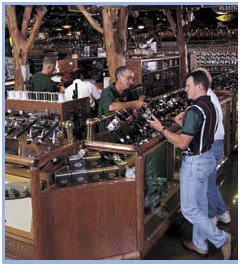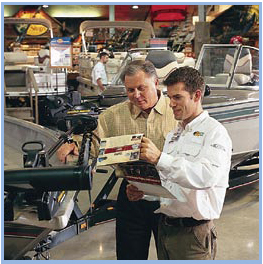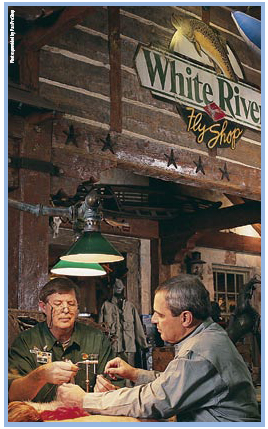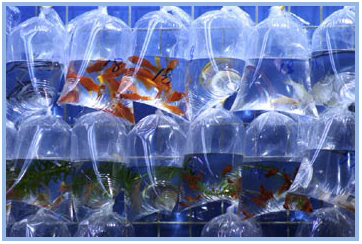News
Product pros
Knowledgeable employees are trained, not hired.
February 12, 2008
This article originally published in Retail Customer Experience magazine, Mar. 2008. Click here to download a free PDF version.
There's nothing more annoying for a consumer than coming home to unwrap her latest purchase only to discover she bought the wrong item.
The displeasure is heightened to extreme levels when she recalls that the useless product was purchased on the recommendation of one of the store's employees. If the employee only had taken the time to be fluent in the merchandise he was selling, maybe he would have known that the MP3 player wasn't equipped with a USB port or that the 2006 DVD release of "The Pink Panther" features Steve Martin, not Peter Sellers.
It's damaging for a retailer's reputation when an employee — whose uniform displays the store's name and logo — leads a customer astray. That's why many retailers take an active approach when it comes to training their employees to know and understand their products.
 |  |  |
It takes one to know one: Bass Pro Shop looks for people passionate about their hobbies and trains them to help the passionate people who shop in its stores. Bass Pro usually finds these employees at its job fairs. Outdoorsmen of all types come to Bass Pro to work at what they enjoy doing. (Photos courtesy Bass Pro Shop) | ||
Jack of all trades
Some do-it-yourself stores such as Lowe's or Home Depot require their employees to maintain a knowledge of highly technical products used in a wide variety of disciplines. One minute, a customer might question the employee on whether xylene is the paint thinner of choice for a particular project. The next minute, someone waiting in the plumbing department may ask him about the benefits of plastic fittings versus brass ones. The upshot is that employees must be generalists with a basic understanding of products in departments such as electrical, plumbing, lumber, flooring, lighting, hardware and garden.
Chris Jensen, executive editor at the North American Retail Hardware Association (NRHA), says that can be intimidating for brand-new employees.
"Particularly for a younger employee — someone who has not done DIY projects like repairing a toilet or fixing a faucet and that sort of stuff — yeah, it would be a little daunting to help a customer if they have no knowledge of those sorts of products or projects," Jensen said. "We really think it's one of the defining reasons why there are still 20,000 independent, family operated hardware stores in business today — because these stores offer personalized attention."
The association's answer for new employees who need to bone up on their home improvement skills? An online training program that covers each of the departments (electrical, plumbing, flooring, etc.) in a series of text- and graphic-based sessions.
"It's interactive and not only describes the seven types of hammers, but it shows pictures of what a ball peen hammer looks like and what a claw hammer looks like, as well as what they're used for," Jensen said. "That online interactive training course can take [the employee] step-by-step through all the information he's going to need to know. It also teaches him merchandising skills and selling skills."
The program uses quizzes to gauge employees' progress as they learn about the various products and departments. Jensen said access to the online material is available to association members free of charge.
But Jensen adds that employers must do more than simply plant the new guy in front of a computer and hope the knowledge takes root. He's also a big proponent of mentoring.
"I just think that learning things online is just one component," Jensen said. "I think it sinks in much quicker if they can also follow along with someone who is dealing with a customer and seeing where something is in a store and how an employee can take a customer through a project and that sort of stuff."
Cats, dogs and parakeets
In some industries, the consequences can be dire if an employee takes the customer down the wrong aisle.
 |
Sometimes you want to buy fish, not just catch them. That's when you need knowledgeable pet store employees. |
Barry Berman is the founder of NexPet Inc., an association that represents the needs of pet stores. He said pet supply stores typically carry anywhere from 8,000 to 10,000 items for dogs, cats, birds, fish, reptiles, rabbits and other small animals. The products range from chew toys to cages to fish bowls.
Keeping it all straight can be a headache for employees.
"For example, in the case of dog chews, there are a lot of different types," Berman said. "There's rawhide, there are dental chews and there are synthetic chews. Depending on the breed, the size and other facts about the dog, you have to be able to recommend something — and you also have to be able to recommend more than one type. Birds require different types of toys and if you give them only one type, then it's going to be a problem."
When you're dealing with live animals, Berman said the stakes are much higher than when you're dealing with hardware or equipment.
"It's possible for the pet to develop a health issue if they're given the wrong thing or if they're not given the right thing," he said.
Like the NRHA, Berman's association developed an online training program to keep pet store employees abreast of all the latest product developments.
"Our FlexQuiz program starts with the premise that you can train employees by giving them quizzes and answers together," he said. "You give them the answers to the quizzes and then at some point you take away the answers and you quiz them."
The program consists of 30 quizzes covering the types of products that might line the shelves of pet supply stores. He said he soon will add 10 quizzes that will focus on selling skills.
"It's written by a small team of professionals who include people who have worked for 25-plus years in pet stores, as well as people who have advanced degrees in animal behavior," Berman said.
He added that new employees aren't the only ones who use the system.
"If a store owner determines that he needs to increase cross-training — if the fish guy needs to learn about dogs and vice versa — they'll often implement it with existing employees."
Fish or cut bait?
As any sportsman knows, fishermen are meticulous when it comes to the tools of the sport. Lures, for example, can be a particular source of controversy. Which lure is catching the most fish at the moment? Determining the right choice can require a delicate balance of skill, experience, research and good old-fashioned luck.
And it's not like the pickings are slim. There are lures for every type of fish imaginable, whether the sportsman wants bluegill, bass or rainbow trout. There are lures for freshwater fish and saltwater fish; top-water fish and bottom feeders.
That's the challenge for employees of Bass Pro Shop, a retailer that sells products for people who enjoy sports in the great outdoors.
Larry Whiteley, manager of public relations for Bass Pro Shop, said the secret to finding employees who know about all the different products is to find people who already love the outdoors before they ever set foot in the store.
"They come to us a lot," he said. "When we do our job fairs and stuff, it's people who have done those types of things, whether it's camping, canoeing, kayaking, outdoor cooking — you name it. They think 'Boy, I would love to work doing what I love to do.' That's the type of people we're after. They come to us. They want to be a part of this. So we interview them and find out their passion for it and how much they know about it."
He said the only people who can point fishermen to the right lures are other fishermen.
"If they're passionate about it, they know," he said. "They know 'deep divers' from 'top waters' and the different colors to use if the water is murky. They know all that stuff. They've done it so much themselves, they know. That, combined with the knowledge and training that we give them, makes them good associates and better able to serve the customer."
He added that employees are encouraged to continuously build on their knowledge. Product vendors are frequently allowed to visit the stores to demonstrate their newest products. Additionally, the store's headquarters in Springfield, Ill., regularly hosts training sessions for the department managers from all its stores.
"It's a continual learning process," he said. "You learn something new every day, even with products that have been here a while. You might get out there yourself and do something different with it."
Travis Kircher is editor of selfservice.org and digitalsignageassociation.org and a retular contributor toRetail Customer Experience magazine.
 ChatGPT
ChatGPT Grok
Grok Perplexity
Perplexity Claude
Claude




